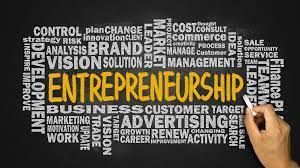Five trends arising from generational differences with ESG & Tech
In the latest episode of the ESG & Tech show, I took the audience through five trends, as I see them, arising from generational differences with ESG & Tech.
People tuned in from all over the world ranging from Western Canada to Australia for the show and here is a summary of what we talked about!
1. Low code platforms
According to a recent Forbes piece, Generation Z want “new-school technology that keeps them as connected, efficient, and productive as possible” and the proliferation of low-code and no-code platforms is truly enabling them to “the power to automate away the most tedious parts of their day”. Personally, I’m a big fan of this type of technology. We use ClickUp to automate workflows. In Airtable, we build a database once and use the interface in many different ways for different customers. Our first iteration of Active Peers AI was built on Bubble! Niall Fitzmaurice from Microsoft noted that 65% of development in 2020 was using low code and Gartner predicts 80% of tech products and services will be built by people who are not technology professionals. Previous generations didn’t have this type of customisable (at scale) technology. Business models focused on buying lifelong licenses i.e. Microsoft’s Windows versus it’s modern Power Platform. Development was expensive, relied on traditional waterfall project management and couldn’t react quickly to user’s beta tests along the way.
2. ESG investing demographic drivers
ESG investing is continuing to gain momentum in the mainstream. Reuters quoted “A record $649 billion poured into ESG-focused funds worldwide through Nov. 30 (2021), up from the $542 billion and $285 billion that flowed into these funds in 2020 and 2019”. However, the real question I had was who are those investors? A “Thought Lab” study shed some light:
o 27% of advisors said that clients of all ages and wealth levels are interested in ESG investing
o 32% of baby boomers and 22% of millennials plan to invest in ESG funds over the next two years
Lest one think that baby boomers are more excited about this theme, it’s actually more likely that they’re picking up on the speed millennials have had all along. A Business Wire article in 2019 stated that “Nearly half of Gen Xers and baby boomers say they are interested in having some money in ESG investments, compared with 66% of millennials”. Further, the rationales between the two were different. “baby boomers are more likely than millennials and Gen Xers to say that the reason they want to participate in ESG investing is to encourage companies to be good corporate citizens”.
3. Intergenerational Wealth Transfer and Education
An FT piece pointed out the whole gaping opportunity that still awaits this area by pointing out that “95 per cent of people say they recycle and 59 per cent avoid single-use plastics, yet only 15 per cent note ESG investing as a way they are actively supporting a sustainable society.” As more people become aware of their capability to express their values through investing vehicles and have more confidence in how to do so, this area is set to grow and grow. A further influential factor is the wave of money that is coming to Gen X and millennials as we see a massive intergenerational wealth transfer in the next two decades. According to Cerulli, “nearly 45 million U.S. households will transfer a total of $68.4 trillion in wealth to heirs and charity over the course of the next 25 years”. In the 2020s alone, Euromoney expects the regional figures to reach $3.2 trillion in Europe and $1.9 trillion in Asia. From an income point of view, millennials have put more planning into their retirement, more money into their education and less focus on buying (rather than renting) property. As they move further into their investing lives their investable capital is poised to enhance. The Venn diagram of this money, expansion of data and vehicles with the education factor places ESG investing right at the sweet spot.
4. Social Commerce
During the show, I was asked if people became more aware of ESG due to the pandemic. I answered this with it’s difficult to make a direct correlation here but we can certainly say that we made much more of an effort to shop local at the time. We also spent dramatically more online due to convenience and lockdowns. It’s obvious, but necessary, to point out that in order to get customers online then you need to be visible online and thus, social media presence is very important. While we might associate Instagram and Tik Tok with Gen Z and Gen Alpha, the reality that “Baby Boomers are the biggest spenders in the United States, and Gen X is close behind” according to Epsilon Research. Instagram’s own 2022 trend report states that “in 2022, nearly 1 in 4 are expecting to thrift more online through second-hand websites…. About the same percentage of teens and young adults are expecting to contribute more to clothing sustainability by selling their own goods through an online store or social media in 2022”. This is where the circular economy, online marketplaces, great intent and high levels of engagement come together.
5. Virtual Reality
At the “BEYOND” conference last October in Belfast, I flew a plane with the Wright Brothers and sat in the cockpit as they wished me luck on my airbound adventure. I then took off my virtual reality glasses and was right back at the exhibition fair in a hotel in Northern Ireland! Virtual reality can take us into another world which can have far reaching implications for education and a variety of other sectors. Google synthesised some findings on this including “more than 71% of centennials (Generation Z) and 58% of millennials are interested in virtual reality … 28% of representatives of Generation Z are ready to buy VR glasses , and only 19% are of Generation Y.” Those who grew up as digital natives are more likely to be interested by tech toys and as the costs of their respective production go down and their integration into other traditional spheres of use increase, let’s watch closely what happens to this industry.
Sign up for our newsletter here to keep up-to-date on future events and blogs




